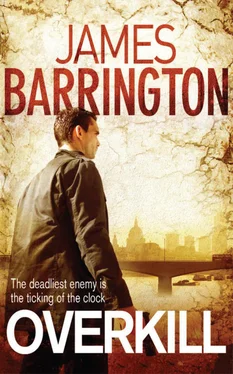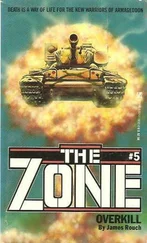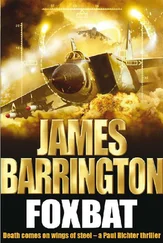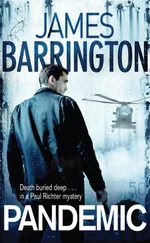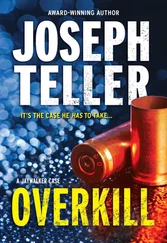Richter grunted in disbelief. ‘Will the American people wear that? With, what, around a quarter of a million dead?’
‘The spin doctors will sort it out, and I don’t actually think it will be that difficult to do. Don’t forget, there was no launch vehicle involved, so they can argue that it couldn’t have been an act of aggression by any other nation, and the bomb itself was really small, by Russian standards, and they can prove it. And there’s even a convenient American Air Force base – Dyess – which is within about four miles of ground zero, down to the south-west of Abilene. They’ll probably say the epicentre of the explosion was there, and blame it on some maintenance glitch or a freak weapon control malfunction.’
‘Very convenient. Does Dyess store nukes?’
‘I’d be very surprised if it didn’t; about half of America’s B-1B bomber force is based there.’
‘And the Russians?’
‘Oh, they’ll pay, there’s no doubt about that. The Americans will seek punitive damages for every life lost and every building flattened, and they’ll get exactly what they ask for. Russia will be in debt for years.’
‘And what about the selection of little incidents on our side of the pond? The SAS killing Russian seamen in Gibraltar, nuclear bombs in Russian trucks on French autoroutes and dead Arabs scattered all over southern France. Am I going to read about them in the paper tomorrow?’
Simpson shook his head. ‘If I’ve got anything to do with it,’ he said, ‘none of these little episodes will ever make any paper. They’ll be far more use to us as bargaining counters with the Russians in the future, not to mention the clout it’ll give us with the CIA and the rest of the American intelligence community. Don’t forget, we – or you, in fact – saved America.’
‘Yeah, right. But you’ll have to tell the press something. You can’t keep incidents like these under wraps – here or over in the States.’
Simpson waved a hand airily. ‘Abilene is going to dominate the news for weeks, maybe months, just like New York did after the nine eleven attacks. Nobody’s going to take any notice of some minor and unrelated incidents in Europe. If anybody asks, we’ll just say, oh, that the Russian ship was carrying arms for the IRA, the Russian truck was stopped as part of a routine security exercise, and the Arabs were terrorists who were killed by a rival faction. Something like that. No further details available due to the security classifications of the incidents and the ongoing investigations.’
‘The usual crap, in fact?’
‘Yes, the usual crap, but that and the Official Secrets Act, and if necessary a handful of D-Notices, will ensure it’s all kept nice and quiet.’
Simpson paused and looked over at Richter. ‘Look,’ he said, ‘why don’t you push off and take some leave? You must have some crumpet lurking around somewhere.’
‘Two things,’ Richter said. ‘I wish you wouldn’t call any woman under the age of forty “some crumpet”, and there’s still one loose end that needs to be tied.’
Richter told him what he wanted to do. When Simpson started to argue, Richter told him why.
‘I’m sorry,’ he said. ‘I didn’t know.’
Richter shrugged his shoulders. ‘No reason why you should. It wasn’t on file anywhere, and until this business it really wasn’t relevant. But you do see why I have to do it?’
‘Yes. Let Tactics and Equipment know what you want and if they give you any flak refer them to me. Just don’t tell me all the details.’
Buraydah, Saudi Arabia
When Sadoun Khamil finally plucked up the courage to contact the al-Qaeda leaders to tell them that their plan, which had taken four years to prepare and cost literally millions of dollars, had come to almost nothing, he had been prepared for furious anger.
To his surprise, the reaction from Tariq Rahmani was much less violent than he had expected. He guessed that the al-Qaeda leaders had realized that detonating the Abilene bomb was a considerable achievement in its own right, overshadowing even the destruction of the World Trade Center buildings in New York, and with a huge loss of life.
He expressed his sorrow at Hassan Abbas’ failure, but assured Rahmani that there would be other targets, other opportunities and, above all, other successes. If he had been less nervous, he might have wondered at one remark made by the man on the other end of the scrambled telephone link.
Just after seven that evening, local time, as Khamil was preparing to go to one of the nearby restaurants for a light meal, he was grabbed from behind by three men, wrestled to the ground and bludgeoned into unconsciousness.
When he came to, he was lying naked on his back somewhere out in the dunes and tied spread-eagled to a rough wooden frame. An hour or so later, a small procession appeared. It was led by Tariq Rahmani, Khamil’s conduit to the very highest echelons of al-Qaeda, and a man he had only seen twice before in his life. Rahmani walked across until he was a few feet from Khamil, looked down at him, shook his head and then stepped back.
From behind him, another figure appeared, moving slowly and with deliberate purpose, and as Khamil heard the click of a knife being opened and saw Rashid’s swarthy features, he suddenly remembered the remark he had heard, but not registered, on the telephone.
Tariq Rahmani had said, ‘It is not Hassan Abbas that we blame for this failure.’
Monday
London
On Friday night Richter slept like a log, and dozed off and on all Saturday. On Sunday he felt more like a going concern, but didn’t leave his flat, even to buy a paper. He watched the news programmes on the television and ate out of his freezer.
At seven fifty on Monday morning he climbed out of the minicab at Heathrow Terminal One and walked in, carrying an overnight case and a slim black briefcase bearing a gold crest. Around his neck was a blue tie bearing a small silver greyhound motif, the symbol of the Corps of Queen’s Messengers.
The Queen’s Messengers are diplomatic couriers who spend their lives ferrying documents from embassy to embassy and back to Britain. Their travels are conducted under the auspices of the Treaty of Vienna and, as diplomatic personnel, their luggage is exempt from search at borders. Every week a Queen’s Messenger, sometimes with an assistant, flies from London to Moscow to deliver and collect the diplomatic mail. All that is necessary is for the British Embassy in Moscow to inform the Russian authorities forty-eight hours in advance who is flying in or out, and the Queen’s Messenger invariably travels on a diplomatic passport.
The Moscow British Embassy had been informed the previous Friday that a Queen’s Messenger named Beatty would be arriving on Monday with urgent documents, and notice had been duly given to the Russians.
At the Enquiry Desk Richter asked if there were any messages for him, and received a manila envelope in return, together with a sympathetic look at his still battered face.
‘Car accident,’ he murmured, and headed for the gents’ toilet. Sitting fairly uncomfortably, Richter opened the envelope and scanned the contents. There was a first-class return ticket on the direct Heathrow– Moscow British Airways flight in the name of Beatty to match the diplomatic passport that he still held. In a sealed envelope was a letter addressed to the British Ambassador, the contents of which Richter knew, because he had told Simpson what to write. He also found another permit issued by the Metropolitan Police, this time endorsed by someone in the higher echelons of British Airways, authorizing the carriage of the Smith and Wesson, and another personal search exemption certificate, which would avoid the pistol shorting out the metal detector in the departure lounge.
Читать дальше
